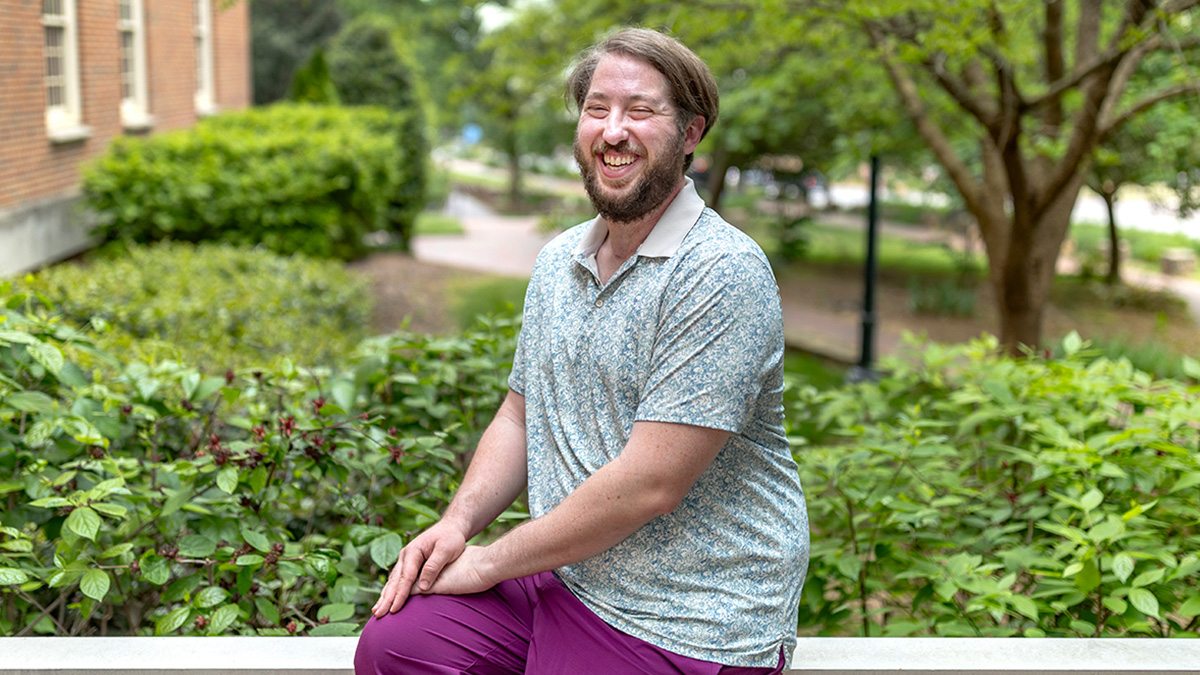PhD candidate solves tough puzzles
With public health projects or his own medical issues, Mark Radin overcomes difficult challenges.

A trip to Jordan as an undergraduate showed Carolina doctoral student Mark Radin the importance of water in international development.
“The story was basically, ‘Oh, we would do this, but we don’t have water. We would do that, but we don’t have water,’” he said.
As Radin, who grew up in New York City, continued his studies, he became interested in a related but tougher sell: sanitation and hygiene.
“The puzzle of it is much more complex than the water situation,” said Radin, a member of Carolina’s Royster Society of Fellows. “You have to convince people to change their habits and culture to adapt.”
Solving that puzzle is what brought Radin to the UNC Gillings School of Global Public Health, where he will graduate with a doctorate in environmental sciences and engineering.
“If you look at the professors who work on water, sanitation and hygiene — in the international space in particular — most of them are either at UNC or went to UNC,” said Radin, who previously worked in China and Kenya with the Jane Goodall Institute and the World Bank, respectively.
The classes he’s taken and research he’s conducted as a Tar Heel will help him with complex challenges such as improving menstrual hygiene in Kenya and creating sanitation solutions in Cambodia, where some people live in floating communities.
Those are two projects Radin is managing through his full-time work as a senior water, sanitation and hygiene specialist at RTI International, a nonprofit research institute based in Research Triangle Park.
“It’s pretty complex, but this is fascinating to me,” Radin said. “It’s applying my interest in puzzles and my intellectual curiosity to a thing that had positive outcomes — or ideally positive outcomes.”
Solving a different type of puzzle
Radin’s time as a Tar Heel has not been without difficulty.
When he returned from a trip to Haiti in May 2017, he noticed an itchy bump on his neck. At first, it was diagnosed as a bug bite, but an ultrasound later revealed that Radin had thyroid cancer.
“Most thyroid cancers are not visible,” Radin said.
Within a month, he had surgery through UNC Health to remove his thyroid completely, which kept him in the hospital for a week.
But Radin’s recovery was relatively swift. While he needed to drop a summer class, he was ready for the start of the fall semester. He still underwent radioactive iodine treatment and received thyroid hormones but felt everyone at Carolina was helpful as he resumed his studies.
“Understanding your energy level takes a long time. I definitely made sure all my professors knew, and they were all accommodating,” Radin said.
He’s also grateful for the support he received from the Royster Fellows program.
“They were helpful the whole time,” Radin said. “I think one thing that I wish fellows knew more is they have more services and are willing to assist more than people fully take advantage of.”
Best of both worlds
While Radin is already fulfilled by his current work, he’s excited by how his professional opportunities could expand with his doctorate.
His employer, RTI International, has a “heritage of academia,” he said. One example is the RTI Fellow Program, which allows employees to conduct their own research.
“This would allow me to get to that path, which is very much with my vision of straddling this practitioner/academic world,” Radin said. “It’s been very lucky.”







